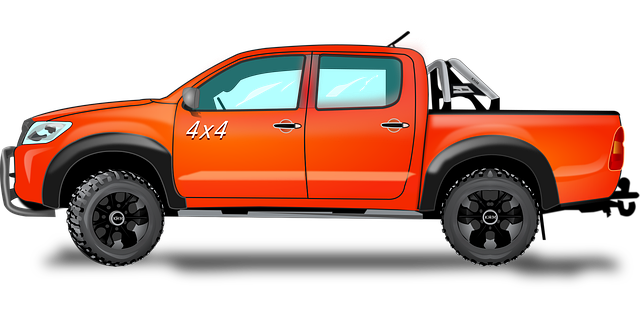The Brownsville Fleet prioritizes safety and efficiency through regular truck brake pad replacements, using structured maintenance schedules and specialized teams. Different shackle types (chain, wire rope, U-shackles) cater to varied load-bearing needs in demanding applications like vehicle brakes, ensuring optimal braking performance. Advanced materials and smart shackle technology further revolutionize safety and efficiency for Brownsville's fleets, minimizing downtime and enhancing overall reliability.
Shackles, a fundamental component of vehicle suspension systems, play a critical role in ensuring safety and stability. This article explores the diverse world of shackles, beginning with a basic understanding and examining various types. We delve into a real-world case study of the Brownsville Fleet, highlighting the significance of regular truck maintenance, particularly focusing on brake pad replacement. Additionally, it provides practical guidance on efficient pad replacement and offers solutions to common challenges faced in truck brake maintenance.
- Understanding Shackles: The Basic Concept and Types
- Brownsville Fleet: A Case Study on Truck Maintenance
- The Importance of Regular Brake Pad Replacement
- Unlocking Efficiency: How to Effectively Replace Truck Brake Pads
- Common Challenges in Truck Brake Maintenance and Solutions
- Future Trends: Innovations in Shackle Technology for Trucks
Understanding Shackles: The Basic Concept and Types

Shackles, a fundamental component in various mechanical systems, serve as crucial links for securing and connecting components together. In simple terms, they are metal loops or bands designed to fasten objects, often used in heavy-duty applications like vehicle brakes, industrial machinery, and even marine equipment. Understanding the concept of shackles is essential, especially when considering their diverse types tailored for specific purposes.
When it comes to automotive applications, such as the Brownsville fleet, shackles play a vital role in maintaining truck brake systems. For instance, truck brake pad replacements often involve using shackles to secure the pads and ensure proper braking force transmission. Different types of shackles include chain shackles, wire rope shackles, and U-shackles, each with unique features catering to specific load-bearing requirements and environments.
Brownsville Fleet: A Case Study on Truck Maintenance

In the dynamic world of trucking, the Brownsville Fleet stands out as a prime example of efficient operations and proactive maintenance strategies. This fleet’s commitment to regular truck brake pad replacement is a key case study in ensuring safety and reliability on the roads. By implementing a structured maintenance schedule, they’ve managed to extend the lifespan of their vehicles while significantly reducing downtime.
The Brownsville Fleet’s approach involves meticulous inspection and timely replacements, addressing potential issues before they escalate. This proactive measure not only enhances the overall performance of their trucks but also contributes to a safer driving experience for both operators and fellow road users. With brake pad replacement as a cornerstone of their maintenance regimen, the fleet continues to set a benchmark for others in the industry, demonstrating that regular upkeep is indispensable for optimal vehicle condition.
The Importance of Regular Brake Pad Replacement

Regular brake pad replacement is a critical maintenance task for any vehicle, but it’s especially important for large fleets like those in Brownsville. Commercial trucks and their extensive use put immense strain on braking systems, leading to faster degradation of brake pads. In the case of fleet vehicles, this not only increases the risk of accidents due to reduced braking performance but also has significant economic implications. Regular maintenance, including timely brake pad replacement, can prevent costly repairs or even avoidable accidents.
Brownsville fleet operators should stay vigilant about monitoring brake pad wear and tear. This involves inspecting pads for signs of severe wear, thin spots, or damage. Professional mechanics can help in setting up a tailored maintenance schedule based on factors like driving habits, vehicle load, and environmental conditions. Remember, the safety of your drivers and the overall condition of your fleet heavily rely on keeping brake systems in top shape through consistent brake pad replacement.
Unlocking Efficiency: How to Effectively Replace Truck Brake Pads

In the world of fleet management, efficiency is key, especially when it comes to maintaining vehicles like trucks. One crucial aspect often overlooked but vital for safety and performance is regular brake pad replacement. For Brownsville fleet operators, this process can be streamlined, ensuring smooth operations on the road.
To effectively replace truck brake pads, fleet managers should consider a systematic approach. Firstly, inspect the existing pads for wear and tear, checking for cracks or thinning. When replacing them, opt for high-quality pads designed for optimal braking performance. Ensure proper alignment during installation to maintain even pad wear and prevent uneven braking. Regularly scheduled pad replacements can significantly enhance safety and reduce unexpected breakdowns, keeping your fleet on track and your drivers confident behind the wheel.
Common Challenges in Truck Brake Maintenance and Solutions

Truck brake maintenance presents a unique set of challenges for fleet operators, particularly in areas like Brownsville where regular vehicle checks are crucial due to heavy traffic and diverse road conditions. One of the most common issues is the gradual wear and tear of truck brake pads, which can lead to reduced braking efficiency and safety risks. Regular inspection and prompt replacement of brake pads are essential solutions, ensuring that fleet managers stay ahead of potential problems.
Brownsville fleet owners should consider implementing structured maintenance schedules, utilizing specialized maintenance teams or trained technicians who can identify pad wear patterns and perform timely replacements. Utilizing high-quality brake pads from reputable manufacturers and keeping a close eye on industry recommendations for pad life expectancy will further contribute to optimal brake performance.
Future Trends: Innovations in Shackle Technology for Trucks

In the ever-evolving landscape of trucking, innovation in shackle technology is reshaping safety and efficiency standards. Future trends point towards smarter, more robust shackles designed to enhance the overall performance and longevity of trucks. One prominent development is the integration of advanced materials like high-strength steels and lightweight composites, enabling stronger yet lighter shackles that reduce weight and fuel consumption. These innovations are particularly relevant for Brownsville fleet operations, where regular truck brake pad replacements and general maintenance are crucial for maintaining safety standards.
Additionally, smart shackle technology incorporates sensors and connectivity features to monitor chain integrity, detect wear and tear in real-time, and provide predictive maintenance alerts. Such advancements can significantly reduce downtime and improve the overall reliability of trucking fleets. For instance, Brownsville fleet managers can leverage these trends to optimize their vehicle maintenance schedules, ensuring that truck brake pad replacements and other critical repairs are conducted proactively rather than reactively, thereby enhancing road safety and operational efficiency.
The journey through understanding shackles, from their basic concepts to future innovations, highlights the paramount importance of regular truck maintenance, especially brake pad replacement. The case study of the Brownsville Fleet serves as a vivid illustration of how proactive vehicle care can optimize efficiency and prevent costly breakdowns. As technology evolves, shackle technology for trucks is poised to revolutionize the industry, offering enhanced safety and performance. For fleet managers and drivers alike, staying informed about these trends, such as innovative brake pad replacement methods, will be key to navigating the future of trucking with efficiency and safety at the forefront.



